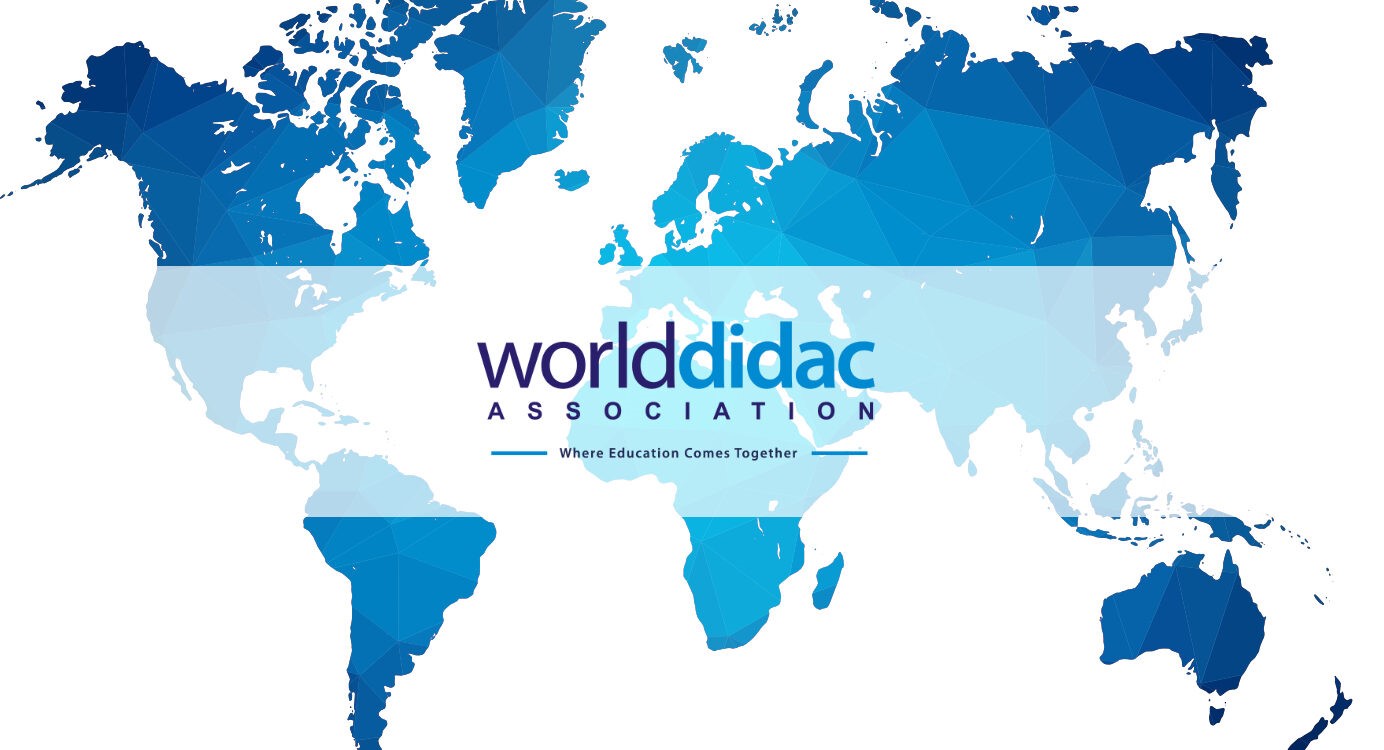
Worlddidac (WD) is a seventy-two-year-old Association based in Bern Switzerland with membership that extends across six continents. WD brings together education stakeholders from around the world, with the express purpose of making a positive impact on learning outcomes for the entire education spectrum.
Multibillion-dollar companies, SME’s, universities and other associations are among WD’s members. Because of its position as a recognized global educational institution, WD is in a position to represent its members and exchange information and viewpoints with senior education leaderships at major IO’s such as the World Bank, Asian Development Bank, ILO, and UNESCO. WD’s membership thereby gains important insight into the most important priorities of the IO’s and, in return, provides the IO’s with an overview of the cutting-edge educational tools available to solve the challenges of education globally.
The principal activities of the Association include organizing major international market exhibitions such as the Biennial Worlddidac / Swissdidac Bernexpo (to take place next time in November, 2025) and the Worlddidac Asia-Shanghai Exhibition (to take place in March 2025). These are massive international events that can attract more than a thousand exhibitors and tens of thousands of visitors. These events address the human need for face-to-face interactions that are the essential building blocks for establishing long-term relationships in the education sphere. The development of such relationships had been significantly undermined by the COVID pandemic and the accompanying digital transition. But as 2023 exhibitions in Bern, Dubai, London and Tianjin have demonstrated, exhibitions are back as the principal drivers for diffusing knowledge of educational tools and solutions.
The WD Association regularly organizes high-level delegation visits for its members to meet with the global and regional leadership of International Organizations that play a key role in promoting and funding educational projects such as the World Bank, UNESCO, Regional Development Banks and others. These highly personalized and focused meetings permit our members to deepen their understanding of the priorities of IO’s in regard to education, to clarify IO’s perspectives on how global/regional/national/local trends may affect types of education solutions being pursued by WD members and for the members to gain a leading-edge understanding of financing models used by IO’s for education projects. The meetings are also beneficial for IO’s because the WD members can provide information to IO’s about the most recent developments in educational technology and other products of WD origin that can be put to use in IO education projects globally.
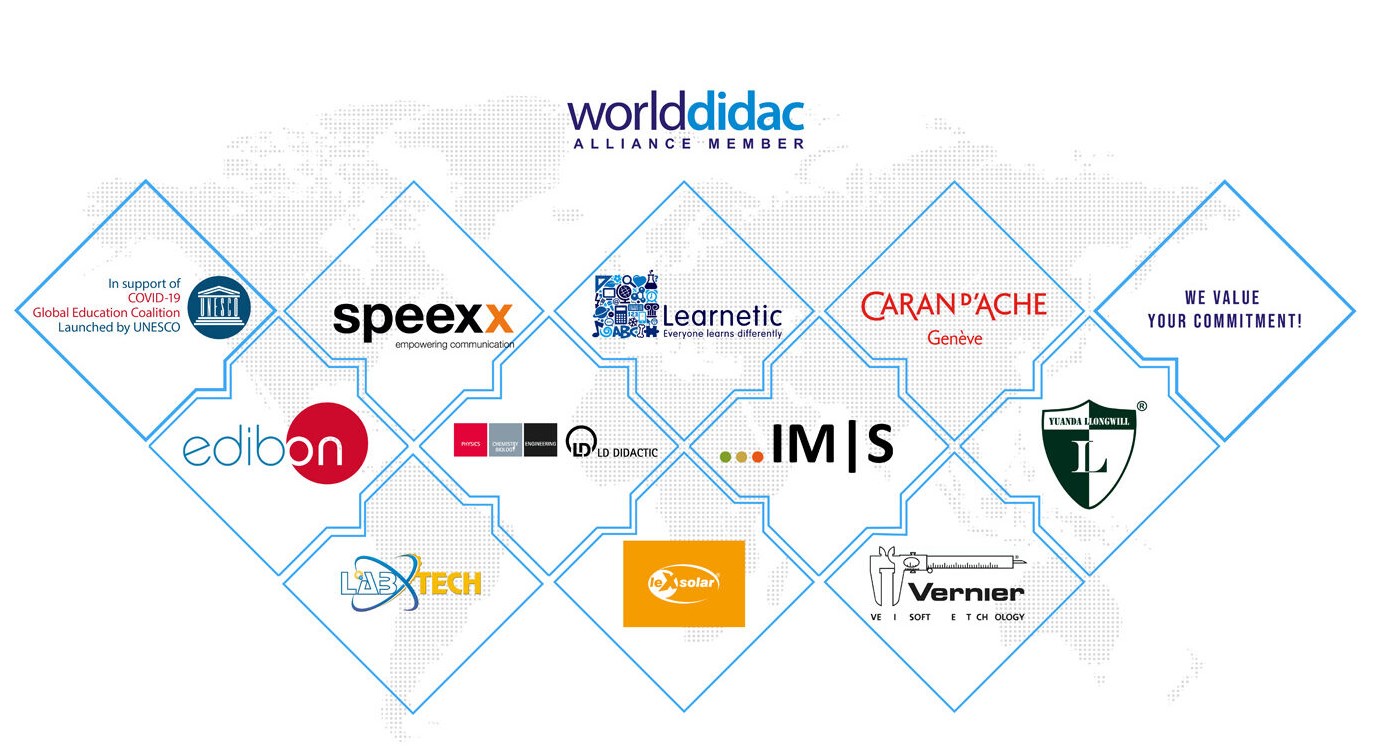
Worlddidac also provides information, encouragement and an organizational umbrella to facilitate participation in non-branded WD events by members who individually may be reluctant to step outside of their own geographical zone. This WD activity helps to increase members’ exposure to regions that we have identified as of critical educational importance such as sub-Saharan Africa, Latin-America and Southeast-Asia. An example of an upcoming non-WD branded event is eLearning Africa, which will be taking place in May 2024 in Kigali. This will be an opportunity for our members to share their educational solutions while simultaneously getting the pulse of education in Africa directly from its Ministers of Education.
Worlddidac In Africa
Dr. Peter Monari Joseph, Worlddidac Ambassador to Africa, highlights the fact that the Association is in partnership with multiple African Governments through its global membership companies. These companies are carrying out research for development of educational resources such as manufacture of training equipment, curriculum design, project design, training of trainers, and capacity building. Many schools, technical training institutes and universities will benefit from this partnership in various ways including participation in benchmarking programs with WD members. Dr. Nader Imani, President of Worlddidac, totally supports the crucial involvement of the Association already has, and plans to increase, in promoting quality education in Africa. He particularly emphasizes the essential role of education in developing skilled labor forces that can meet the most pressing economic and sustainability needs of African countries in the areas of IT infrastructure, renewable energy, healthcare, transport, mining and critical materials. The Association is providing training, resources, and support through its linkages with governments, IO’s, educational institutions and industry stakeholders, by advocating integration of IT into educational curricula and by promoting educational and training programs keyed to specific needs of the diverse countries of Africa. This approach empowers African students and professionals to contribute to the innovative growth of green and digitally advanced economies (including broad-based digital literacy) in ways that address the particular situations of their home countries. All of these actions demonstrate the WD Association’s strong support of the UN’s Sustainable Development Goal (SDG) 4 whose aim is to ensure quality education for all and to foster gender equity for increasing opportunities and progress.
Global recognition of Worlddidac’s leadership position in global education and the Association’s affiliation with Ministries of Education in Africa has the beneficial effect of harmonizing and standardizing occupational standards and policies for education. This is very important because such standardization facilitates effective and efficient functioning with UN Agencies such as UNESCO, ILO, UNIDO, UN WOMEN and UNICEF among others. Worlddidac and its members fully support the efforts of UNESCO and the Association is proud to be part of the Global Education Coalition.
Worlddidac also works closely with the Association for the Development of Education in Africa: (ADEA) and the African Union to create projects and policy alignment in the education sector. In this connection, WD is in the process of identifying projects with development partners and donors to support technical and vocational education in Kenya, Uganda, Tanzania, and Rwanda among other African countries. The process involves developing an integrated ecosystem for non-binding partnerships and the signing of working documents and Memoranda of Understanding.
The Worlddidac Association and its members are committed to being a significant partner in meeting Africa’s educational needs. We strongly believe that the continent, despite many historical challenges, is at the cusp of immense educational advances driven by recognition and implementation of best practices and identification of technologies that leap-frog current infrastructural constraints. These educational transformations will empower teachers and generate a social and political environment that values and prioritizes the teaching profession, the unimpeded access of children and adults to quality education, and the skills and knowledge necessary for responsible and informed citizenship as well as a thriving professional and labor force. At Worlddidac Association we imagine an Africa, a world, where no child or adult is left behind due to lack of access to education.
By: Dr. C. Rodrigo Sáez Muñoz, with important contributions from Dr. Nader Imani and from Dr. Peter Monari Joseph


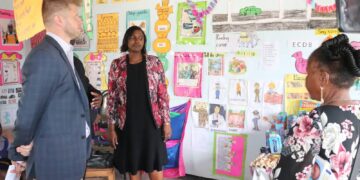


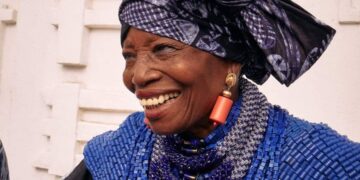
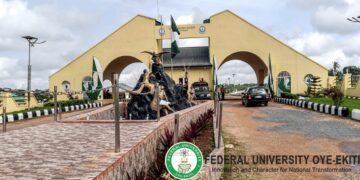





























































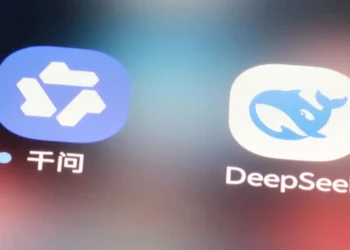
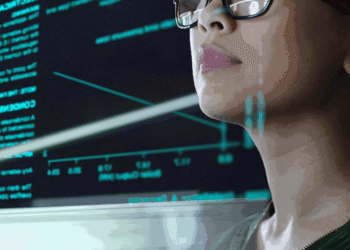
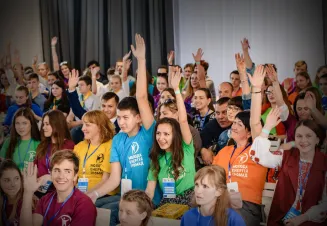










 EduTimes Africa, a product of Education Times Africa, is a magazine publication that aims to lend its support to close the yawning gap in Africa's educational development.
EduTimes Africa, a product of Education Times Africa, is a magazine publication that aims to lend its support to close the yawning gap in Africa's educational development.